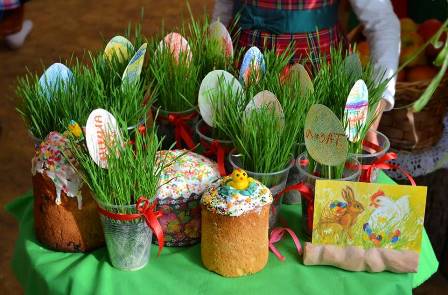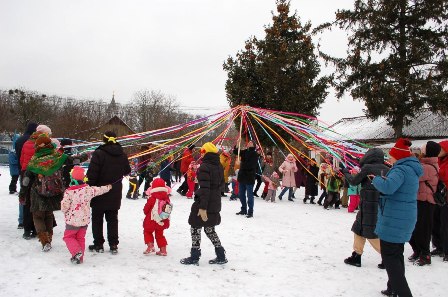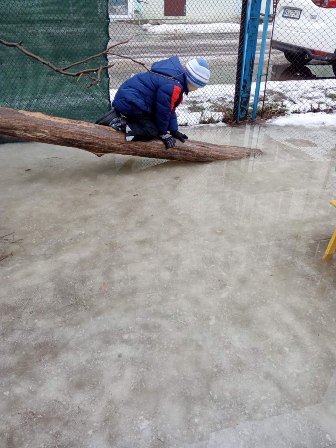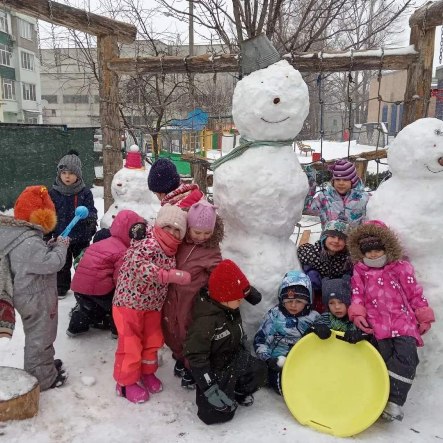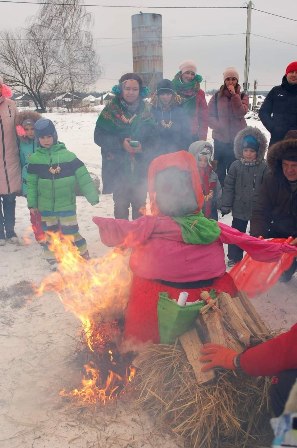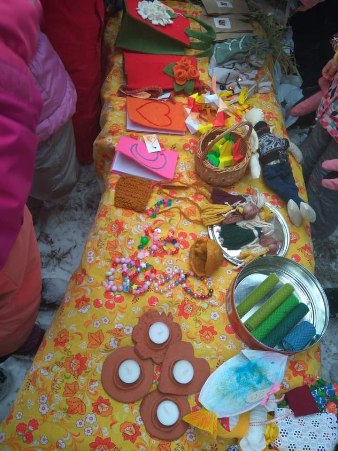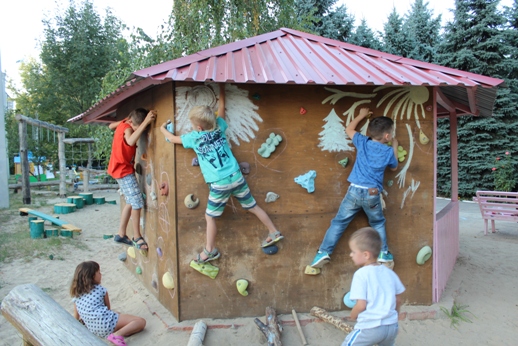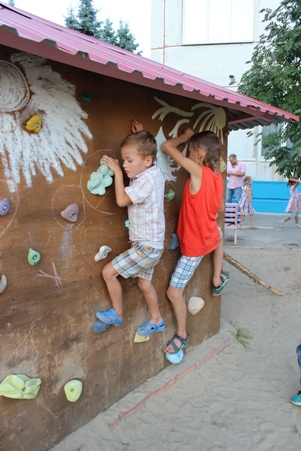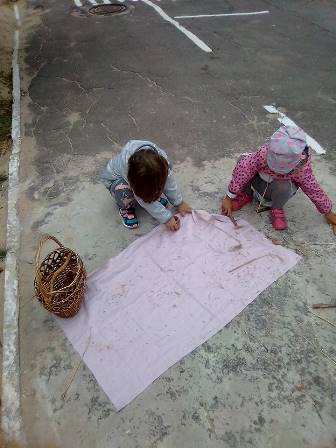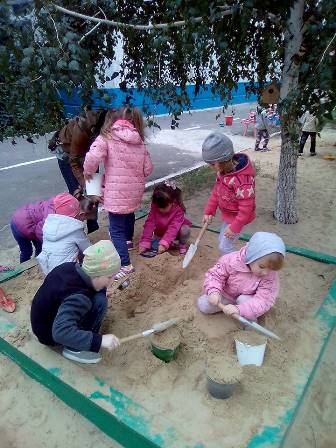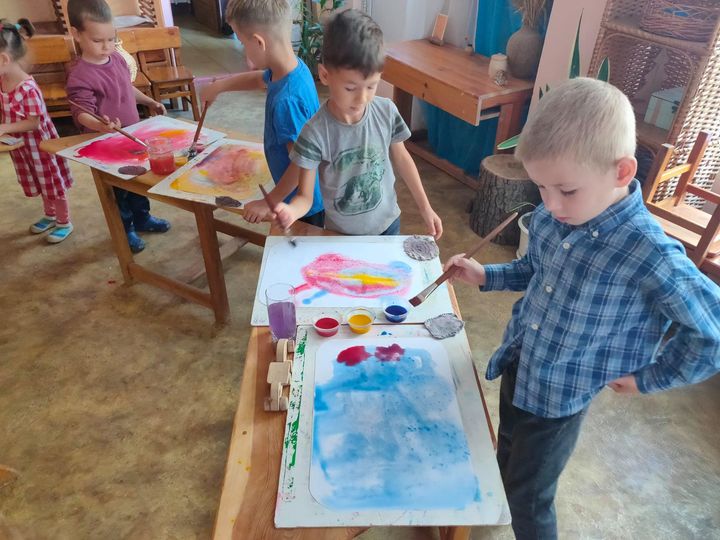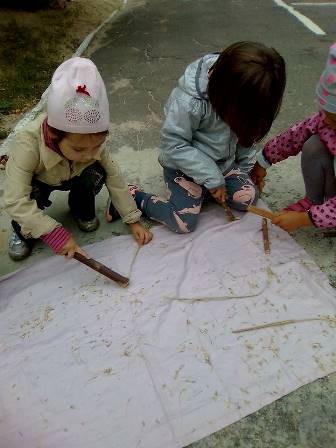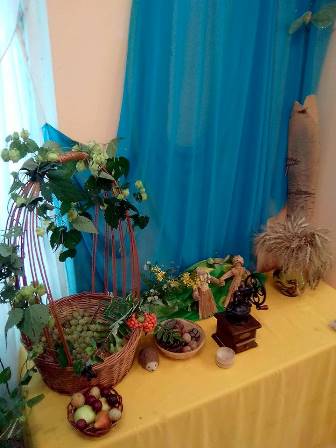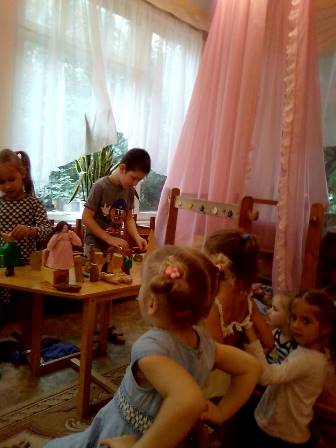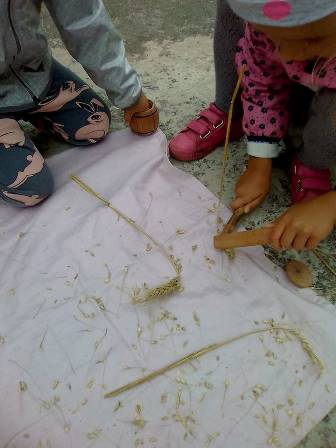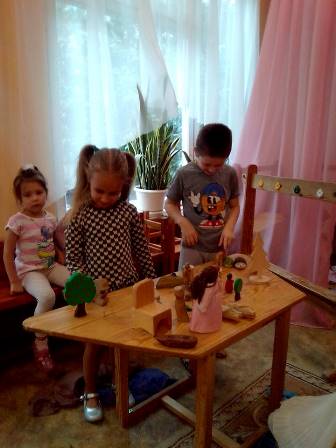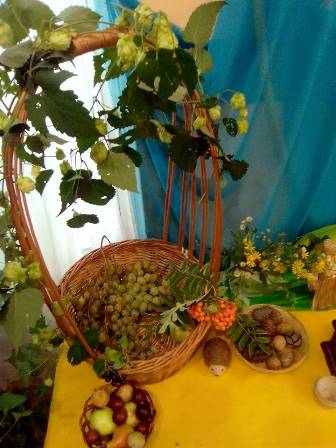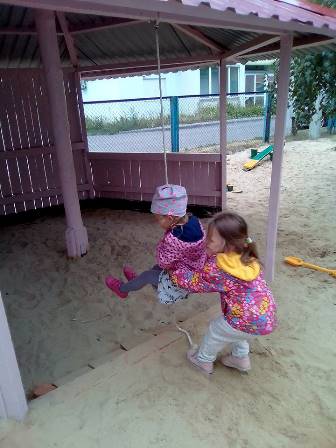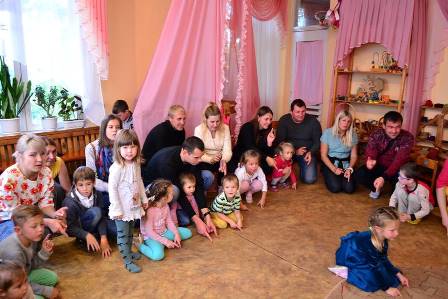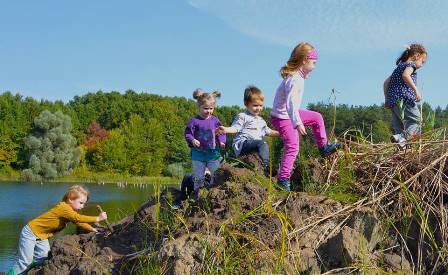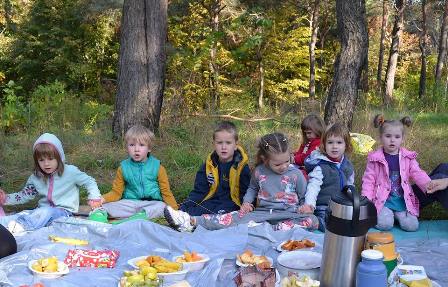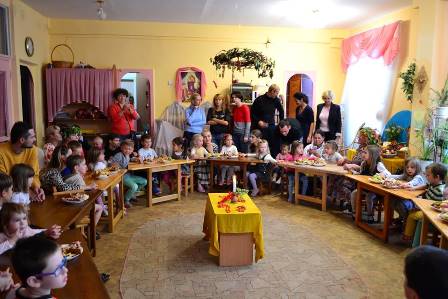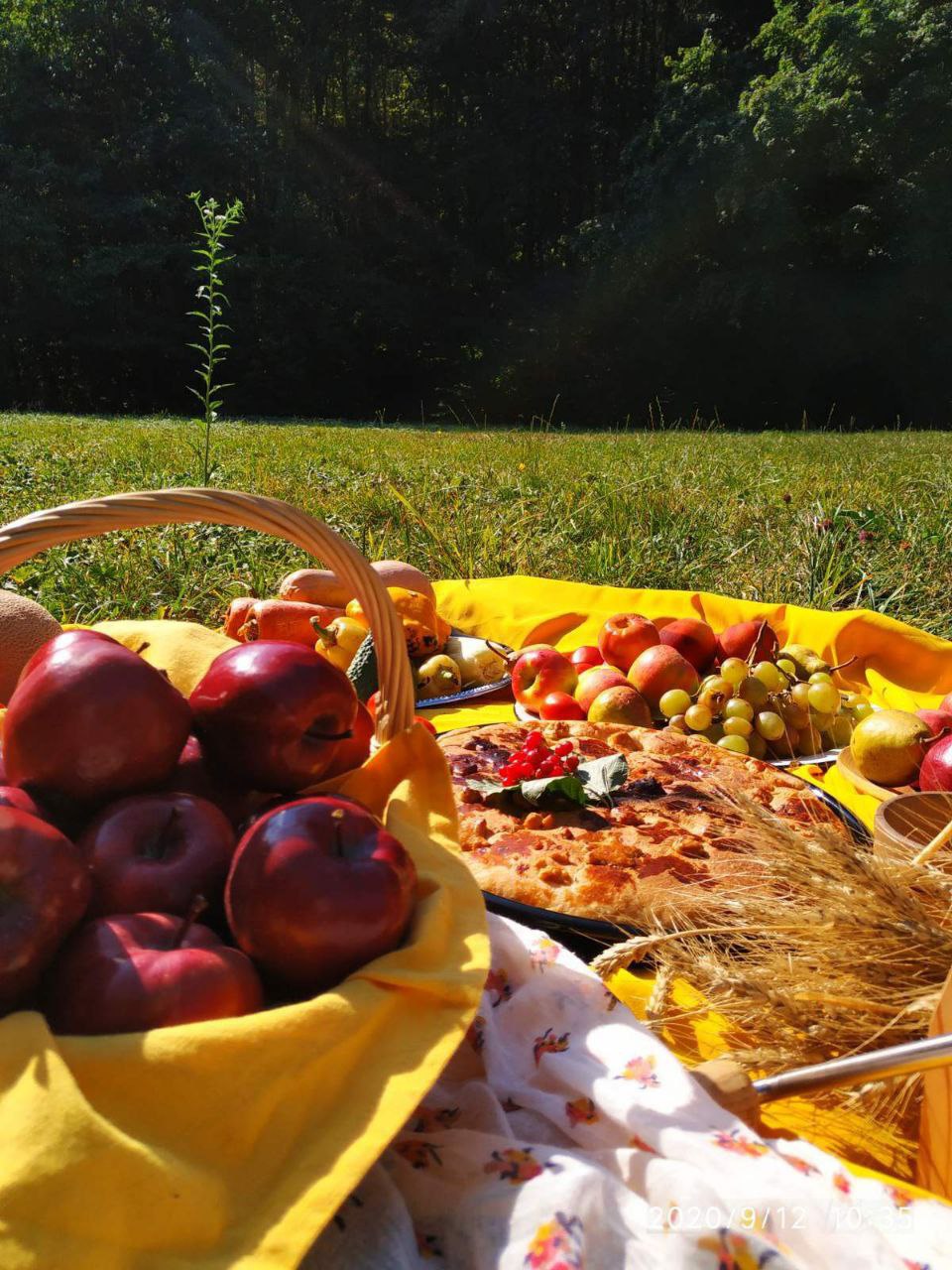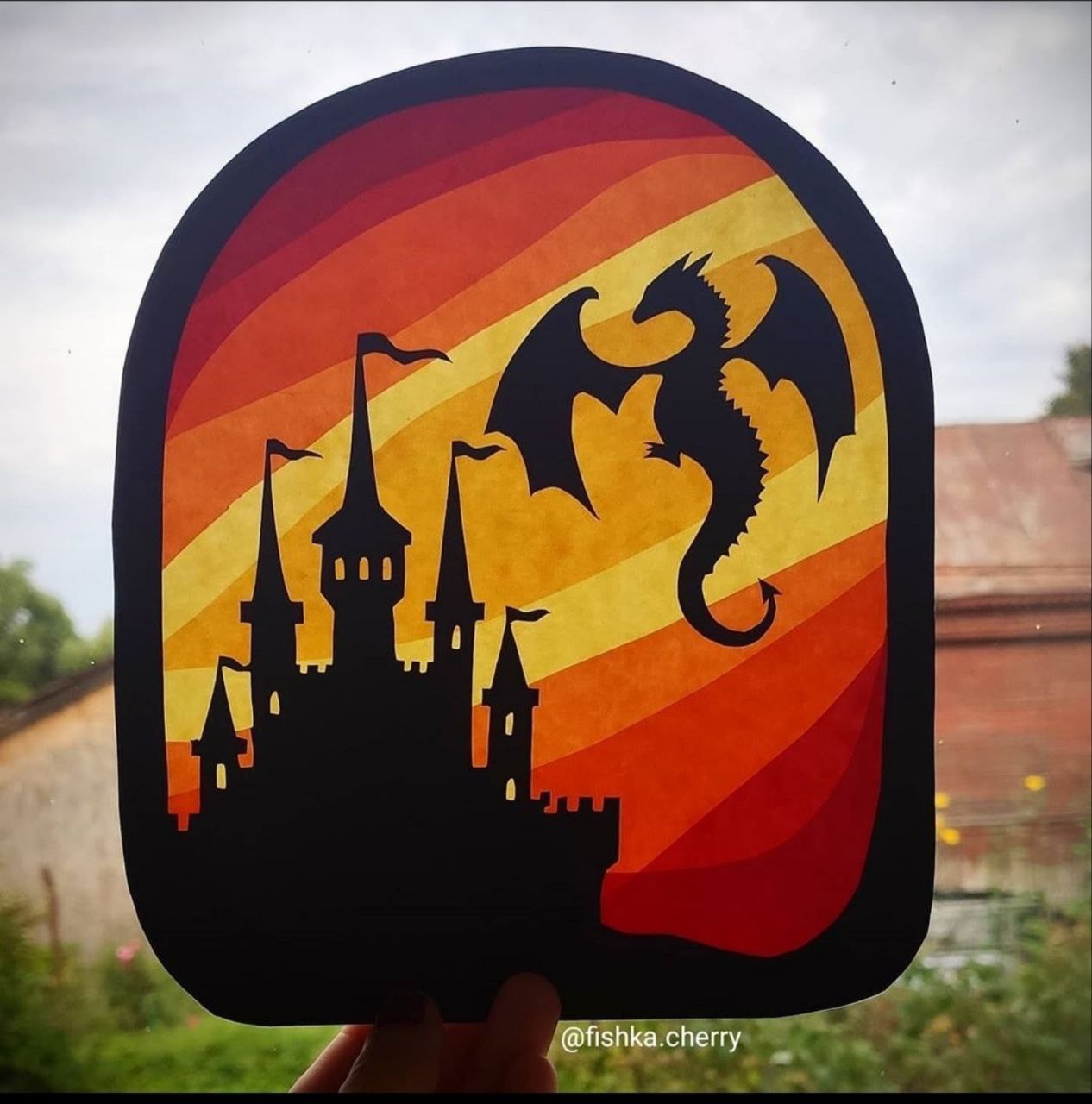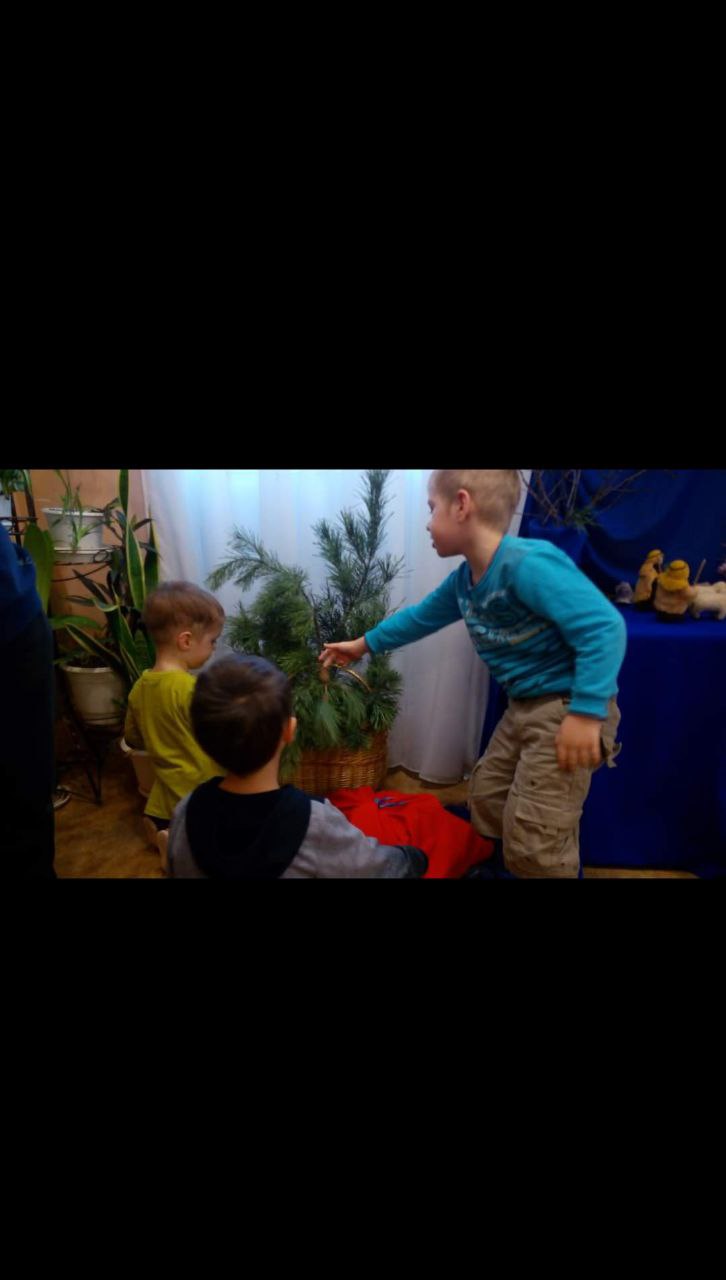When under stress, the muscles of the arms become strong and strong, and for the proper development of the brain and other organs of the physical body it is necessary that they experience the corresponding action from the environment.
Let’s illustrate this with an example. We can make a doll for a child: we take an old napkin and, folding it, make legs from two corners, and arms from the other two corners, tie a knot in place of the head, on which we draw eyes, nose and mouth in ink. We can also buy a “beautiful” doll for the child in the store, which will have real hair and rosy cheeks. It goes without saying that a doll bought in a store is ugly and can forever distort a healthy aesthetic sense. For a teacher, the main thing is completely different. Playing with a folded napkin, the child in his imagination fills in what he lacks in order to look like a person [R. Steiner].
The work of fantasy has a formative effect on the brain – it experiences a load similar to that experienced by the muscles of the hands involved in the work. The brain of a child who has received a so-called “beautiful” doll does not function in this sense; Instead of developing, it languishes and dries up. All toys consisting of “dead” mathematical forms have a drying and killing effect on the formative forces in the child – everything that evokes the idea of a living thing acts correctly. In our materialistic times, few good toys appear.
An example of an excellent healthy toy is “blacksmiths”: two movable wooden figures that alternately hit an anvil with a hammer. Books with pictures and insert figures are very good, which, if you pull them on special strings, move across the page. Thus, the child can turn a frozen image into a moving action; By playing, he imparts to the physical organs the internal mobility necessary for the formation process to be correct.
Everything related to fantasy and art expands the soul and consciousness of a person. The ability for creativity, established in early childhood, turns into a wealth of ideas, mental and spiritual mobility in everyday life and work in adolescence and adulthood.
FREE PLAY
In Waldorf kindergarten, free play is emphasized. Any healthy child loves and knows how to play, moreover, he needs it.
To play, children unite freely with each other under the influence of their own motives. Free play gives children the opportunity to actively express themselves. Actively express what they saw, what they experienced. We build free play also on the basis of example and imitation. Children will play games that they have already played with the teacher or play out their past impressions. They are divided into groups and enter the game, following their inner experiences. What the child has experienced before becomes the subject of his play. He once again processes his impressions in the form of a game, thereby recognizing the world around him. While playing, the child creatively masters his impressions. He does this with the power of imagination. But if children run around the room randomly, scream, and interfere with each other, there can be no question of any creative play based on fantasy. The teacher’s task is to help each child find his game, his place in the game, to help children enter the game more fully.
Sometimes all free children’s play is only an imitation of the life of adults surrounding the child.
Imitating the work of an adult in play (cooking, caring for a child, treating a patient with a doctor, selling food in a store, etc.) helps children develop those qualities that they will really need later in their adult lives. The most important of them: creative attitude to work, dedication, patience.
The game naturally trains and improves speech, and younger children easily increase their vocabulary by communicating with older children.
In a Waldorf kindergarten, free play is the most important, necessary element in the rhythm of the day.
DAILY MUSICAL RHYTHMIC GAME
Daily musical-rhythmic play, for which other terms are often used (“round dance”, “performance”, “reigen”), represents a special type of activity with children. The teacher as an actor, using poetry, melodies, depicting the movements of people, animals, and the characteristic features of other characters in the plot, plays a small performance in front of the children, and the children repeat, sing along, and reproduce it through imitation. Such a “round dance” in a Waldorf kindergarten includes songs, poems, finger painting, gestures, folk outdoor games, dance movements, united by a common plot. The content of the game becomes a fairy tale, processes occurring in nature or events in people’s lives.
Playing every day in such a “round dance,” children easily and joyfully imitate the simple artistic movements of the teacher, naturally assimilate and memorize poems, songs, and movements without special memorization. Such daily musical-rhythmic play provides a variety of opportunities for speech development, has a beneficial effect on the child’s senses, the rhythmic system of the body, helps to revive imagination, and develops social abilities.
FINGER AND GESTURE GAMES
In finger and sign games, the content of the verse is depicted through the movements of the hands and fingers. Such games put a strain on fine motor skills of the hand, which contributes to the emergence of more subtle, differentiated movements, affects the development of the tactile sense, and the development of brain connections. It has been established that the level of children’s speech development is directly dependent on the degree of established fine movements of the fingers. Thus, thanks to the connection between the movement of different parts of our body with the cerebral cortex, which is especially pronounced in relation to the fingers, this type of game helps to activate the activity of brain cells and the emergence of connections between the latter; promotes mobility of speech and thinking in general. At the same time, the child’s intelligence develops in a natural, healthy way.
The importance of gestural play also lies in the fact that, being expressed expressively and beautifully by educators, it gives an impetus to the emergence in the child of a living image behind the gesture and contributes to the development of a kind of internal mental mobility.
OUTDOOR GAMES
Outdoor games have a beneficial effect on the development of the physical, intellectual, and emotional spheres of a child’s personality. It is also important that in these games the child realizes himself as a social being, learns empathy, and absorbs the cultural traditions of the people.
One of the features of the Waldorf kindergarten is the method of teaching and organizing outdoor games. It is based on children’s imitation of the teacher starting the game. An important condition that distinguishes outdoor games used in Waldorf kindergarten from simply sports games is their figurative plot, as well as the lack of emphasis on children’s competition with each other.
When a teacher chooses a type of outdoor game, priority goes to folk outdoor games.
Among outdoor games, a special place belongs to games that include singing or dancing movements of the players.
Outdoor games are played both indoors and outdoors. The latter is especially desirable due to the healing effect of a variety of physical movements performed emotionally, joyfully in the open air.
GAMES – WAITING
The term “waiting games” denotes a group of games with a pronounced social aspect. Children participating in them are given the opportunity to demonstrate their social sympathies and preferences. This, in turn, allows the teacher to better understand the social structure of the group, and therefore be able to influence it. Such games help children quickly and naturally get to know each other, learn all the names, and be attentive and caring.
“Waiting games,” as a rule, have a simple plot: you need to guess who is hiding in the “Blue House” (under the blanket) or, while singing a song, pass the bell, calling someone’s name.

